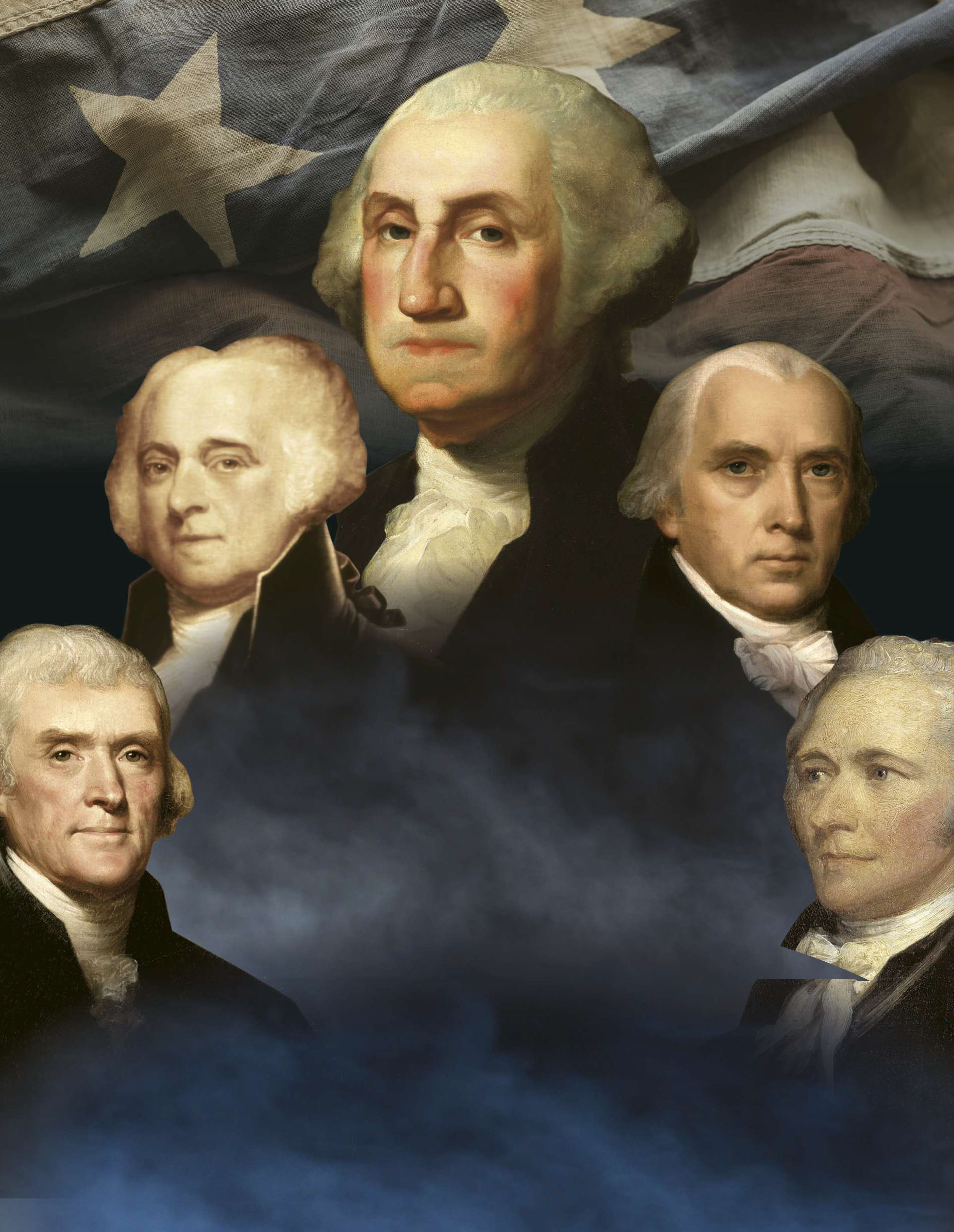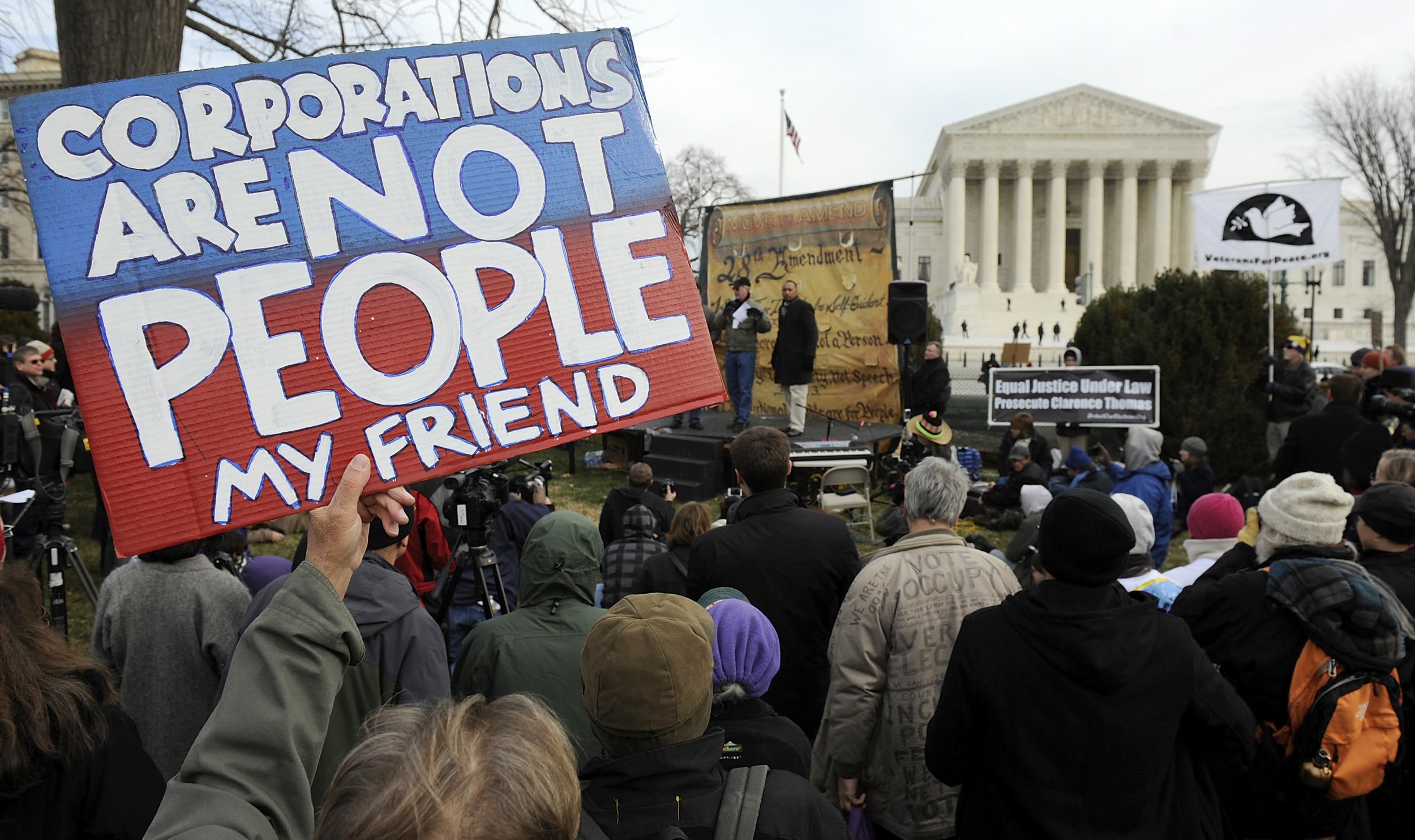What is partisanship? Have you ever thought about what it means? By that I mean really thought about what it does to society? Partisanship, on the surface, is the division or separation of people, usually along political or ideological lines.
Thus the goal of partisanship is to create competing camps whose sole aim is to dominate the other by forcing their ideology and goals not just on the other side, but ultimately on the nation as a whole.
Partisanship then is all about dominance of society. It will compromise, but only as a means to gradually buy time and incrementally gain ground. Sometimes it moves forward on some fronts and falls back on others. You can think of it as a game of long term strategy.
In the United States, partisanship was something many of our Founding Fathers strenuously opposed. Did you know that in 1787, when representatives to the Constitutional Convention came together in Philadelphia to discuss the new government , there was no mention of political parties? That's because they saw these political "factions" as they called them detrimental to the health and stability of the nation.
That's because our Founding Fathers believed that political "factions" would soon come to represent the interests of powerful economic and social groups and would eventually supplant the political power of the citizenry. They felt that when someone was elected to office, they were there to serve the interests of the district and state which had elected them and not some clique.
Political factions had, after all, caused tremendous economic, political, and social strife in England which essentially had violently tore the country apart and resulted the deaths of thousands thanks to all the civil wars it caused. Many of our Founding Father's ancestors were forced to flee England due to these civil wars.
Alexander Hamilton referred to political parties as "the most fatal disease" of a republic. James Madison, Benjamin Franklin, and George Washington all spoke out against partisan politics. While differing opinions were to be expected, they weren't supposed to be competitive to the point where the nation suffered. It was their intent that the general welfare of the country and its citizens were the first and only goal of government, not that of certain cliques who interests were in their own economic and political wellbeing.Today, Americans are divided along nearly every conceivable line you can think of. Some of the divisions are exploitations over economics and class, while others seek to divide along racial, educational, religious, regional, ethnic group, and social lines, including what constitutes who is and isn't a citizen as well as what---if any---rights they have.
When we thought we couldn't be split any further among gender, found ourselves divided over sexual orientation. Now, it's all about "fluidity" of sexual identity ranging from transgender, pangender, gender neutral, non-binary, third gender and so on. All of this is form and function of partisanship in today's world.
Some would claim that the point of such real and artificial divisions is the result of a overly permissive society. Others, however, see it as an attempt to pit American against American for the purpose of keeping us from focusing on the real issues affecting all of us, and on those special cliques who now seem to "rule" the country.
As many of you know (or should know), this country was founded as a constitutional republic along democratic lines (that is, we elected representatives to office for the purpose of serving our interests in accordance with the Constitution, which is the ultimate arbiter of law in this country.
However, that's all changed. Over the years (and decades), America has gradually lost its sovereignty to those special economic cliques we were warned about over 200 years ago. Today's America is a defacto Corporatocracy, which is a close partnership between government and Big Business (in our case, Wall Street). It is not "socialism" as we're so often told (basically to inspire fear of the term). It is a form of feudalism or neo-fascism.As an aside about corporatocracy and fascism. Italian dictator Benito Mussolini coined the term "fascism" as a loose union between political and private business interests, which he pointed out would better be described as corporatocracy. From his perspective, government would be the senior partner of this union. In today's corporatocracy it is the interest of Big Business is the senior partner.
Another thing about fascism, especially the modern version is that it is highly adaptive. While it tends to fall on the far Right side of the political spectrum, fascism borrows from the Left and the Right, and even Center. It adapts to the history, traditions and values of each country in order to take root.
That's why the fascism of Nazi Germany, Italy, Japan, Argentina, Hungary, Austria, and Romania were all so different. However, they all had three things in common and that was their fear of democracy, socialism, and Stalin's Communism which represented a competing form of totalitarianism.
Our political partisanship today is divided between the Democrats and Republicans, which have a thin veneer of ideological differences. Of course, once there was a much deeper ideological divide. However, since 1945, the power of Wall Street has grown to completely engulf both parties until now they are little more than shells of their former selves.
Citizens United (which was upheld by the Supreme Court in 2010) granted corporations "personhood" and extended rights to these artificial entities in excess of actual people. In addition, it allowed corporations and the super wealthy virtual carte blanche ability to underwrite political parties and candidates while keeping the average citizen capped at what they can donate. In effect, Citizens United gave control of our political system to Wall Street.Nowadays, corporations write most of the bills which is then shuttled by corporate lobbyists through the various committees and ultimately become laws, and you can bet they aren't written to benefit us! Partisan gerrymandering allows political parties (and by default, their corporate owners) the ability to choose their potential voters and thus lockout any meaningful competition.
As a result, 98% of all Congressional incumbents are reelected despite their poor performance. Without term limits and changes in partisan gerrymandering, it means we'll continue to receive the same mediocre performance that we've been getting for decades while they keep getting richer. It's also worth remembering that the disapproval rating for Congress is whooping 78%.
There's something else we need to remember about partisanship politics. In our "winner-take-all" political system (the only one of its kind among "democratic" nations), when a particular party wins, those who voted for that candidate will have a voice (at least in theory) for the next however many years. by the same token, the losers have nothing.
To put it another way, if your party or candidate won, you can relatively expect them to vote along the lines you want (actually, they'll vote the way their corporate clique dictates), but at least it give you someone to appeal to. However, if your candidate or party lost, you can expect "taxation without representation" since you won't be represented, especially if you live in a gerrymandered district, and more so in a state without term limits. However, there is something we can do about it.
The obvious solution is end partisan gerrymandering by taking it out of the hands of political parties and turning it over to a local university and college and allow their mathematics departments to use specially designed algorithms based on demographics and voting registration to create a balanced and fair districts.Secondly we could impose term limits which would end party control of districts and ensure voter preferences. It would also cut down on corruption and return our political system to the "citizen-legislator" envisioned by our Founding Fathers.
Another option would be Rank Choice Voting. This concept allows for candidates to be randomly ranked by name and office (no party identification). Voters would numerically rank their preferences by number. The top three would move on to the general election where the top ranked candidate would win, thus ending the need for competitive "popularity contests" by party. Candidates would be chosen based on what they bring to the table in terms of solutions.
As an aside, we must end taxpayer based support for primary elections. That's right. Taxpayers, whether you vote or not, a member of a third party, or like the majority of Americans and are an Independent, are forced to pay for partisan elections through their taxes. This must stop. Instead, let the parties pay for their own partisan primary.
Elections should be fair and balanced. That means potential candidates should have equal access to the ballot. Instead, Independents and third party candidates often have to jump through extra hoops just to get on the ballot like having double or triple the number of signatures on their application form or paying a higher registration fee. What's good for the goose should be good enough for the gander!
While we're on the subject of registration, most states have a board of elections with a Democrat and a Republican election officer, but no one for either third parties or Independents even though Independents are the majority voters in the U.S. Instead, they are simply randomly assigned the minority corporate party who totally ignores them. Independents and third parties need to be treated on par with both corporate owned parties.In addition, each state should mandate that all duly registered candidates be allowed to participate in local and statewide debates and have the same access to public airwaves as the Democrats and Republicans do. This is not about asking for anything extra. It's about equal opportunities.
Voter ballot initiatives and referendums are another avenue which would help balance the power between the corporate based legislation and the voters. Citizens should be allowed to submit proposals to be placed on the ballot at the local and state level. Each proposal would have to be reviewed by the County Attorney or State Attorney General's offices to ensure the proposal is legally valid. Voters would then have an opportunity to vote up or down on the issue.
Another issue related to voting pertains to taxes. Since it's the citizenry who must pick up the tab, shouldn't we have a say in what we're paying for? Any tax proposal or salary increases for elected officials need to be submitted for voter approval.
Obviously the biggest issue is the removal of the farce known as Citizens United. Corporations are not people. They are artificial legal entities. They should not be able to give nearly unlimited amounts of money to candidates or political parties. Corporate lobbyists also should not be writing legislation. That's the job of those elected to office.These are just a few things that need to be done to end the partisan politics which has so divided this country, but it's a start and we need to start somewhere. Until we do, things will only continue to get worse. It's past time that we restore our Republic to the ideal set forth by our Founding Fathers.
If you want to know more about this article's topic, please check
out the links below. If you enjoyed the article, please consider passing it
along to others and don't forget to subscribe. It's free! Lastly please be
sure to "like" us on whatever platform you use to read anotheropinionblog.com. It helps with
the algorithms and keeps our articles in circulation. Thank you!
Congressional stagnation in the United States
Gallup: Congress and the Public
What Our Founding Fathers Said About Political Parties
Political Parties - The Founding Fathers and Political Parties
Term Limits: The Only Way to Clean Up Congress
The Need For Supreme Court Limits







1 comment:
Truer words were never written!
Thanks, Paul, for an eloquent explanation of what needs to be done to reverse the harm done to our Historically great republic !
Post a Comment